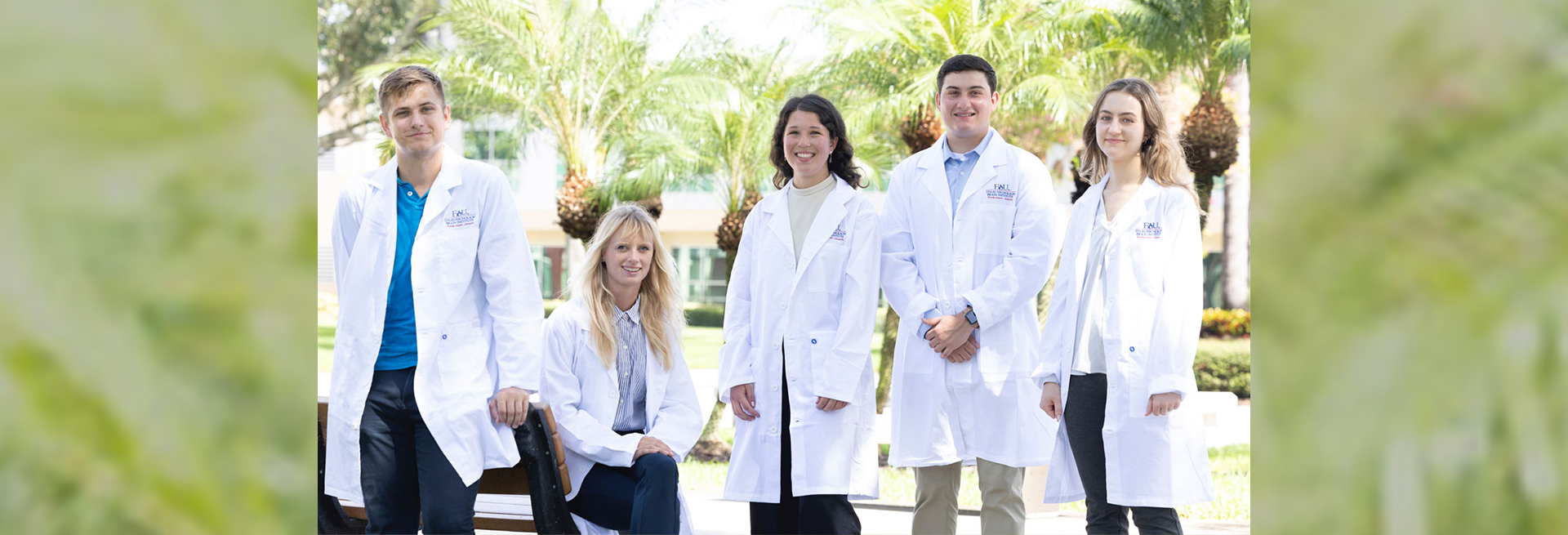By Chelsey Matheson

Five students recently joined the Florida Atlantic Neuroscience Graduate Program (NGP). The interdisciplinary program, administered by the Stiles-Nicholson Brain Institute (SBNI), immerses students in hands-on research that spans the breadth of neuroscience inquiry.
The NGP program provides one-of-a-kind training opportunities for those at the beginning stages of their neuroscientific careers, in three areas of emphasis: theoretical and computational neuroscience; cellular, molecular and biomedical; and neuroscience sensorimotor, cognitive and behavioral neuroscience.
During their first year, students are introduced to different areas of research through a series of three internship rotations in NGP faculty labs.
“I was attracted to the Ph.D. neuroscience program at FAU specifically for the outstanding faculty and cutting-edge research as well as opportunities for collaboration with the Max Planck Florida Institute for Neuroscience,” said Belle Krubitski, a new NGP student. “I was also excited to have the ability to rotate and experience working in different labs and learning new techniques.”
Krubitski was one of four new NGP students chosen as inaugural Ewing Capotosto fellows, funded by philanthropists Anna Ewing and John Capotosto to support students during their first year in the program with matching funds from the Brain Institute to support their second-year studies.
“I started my career at the dawn of the digital age and have witnessed first-hand how technology can revolutionize our lives,” Ewing said. “With advancements in big data and artificial intelligence, we have the opportunity to accelerate our discovery of new treatments and cures, and SNBI has a leading role to play in this journey.”
Ewing also cited the NGP’s interdisciplinary approach as an important factor in wanting to support students in the program.
“The diversity of experience, coupled with cutting-edge research capabilities, facilitates new discoveries, and we want the best and brightest students to lead this research,” she said.
Fellows were selected based on academic performance and high potential for success as graduate students, according to Randy D. Blakely, Ph.D., executive director of Brain Institute and director of the NGP. “This fellowship helps these promising young scientists shed some of the financial burden of pursuing their doctorates so they can focus on developing their knowledge and skills and take full advantage of the world-class research opportunities available to them at FAU,” he said.







